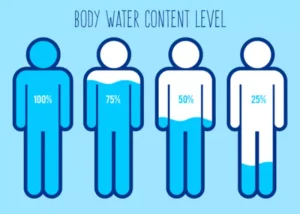
While Ibuprofen is not physically addictive, the continued use of the drug can present physical risks and hazardous consequences. There are physical side effects and risks of Ibuprofen use and overdose that can occur without any warning while taking this drug. If Drug rehabilitation you or your loved one is concerned about an Ibuprofen dependency or side effects that may be experienced while consuming this drug, it is critical to seek appropriate medical treatment and support. Many individuals may find it necessary to take painkillers, such as Ibuprofen, on a long-term basis in order to manage chronic and severe pain, just as back pain from an injury or joint paint from arthritis. While Ibuprofen is not physically or psychologically addictive, a person may become physically dependent in order to maintain their activity level by controlling pain.
- Muscle aches and the other described signs might be misidentified as unrelated health problems or neglected as merely stress-induced or exhaustion-related manifestations.
- This may lead to the risk of developing a dependency or tolerance on the drug due to feeling like they cannot function normally without it.
- If you’re worried about misusing it, make sure to follow the instructions on the label (if you’re getting it over the counter) or the dosage guide and directions from your doctor.
Treating an Ibuprofen Addiction
When a person takes the drug in doses that exceed the recommended amounts or continues their use beyond the advised duration, it becomes particularly critical to get help. The need for professional help is underscored by behaviours such as concealing ibuprofen intake, feeling compelled to take more medication and unable to cease using it, and enduring withdrawal symptoms. Someone who has become dependent on or addicted to over-the-counter painkillers like Ibuprofen should seek professional assistance. Drug treatment programs are designed to support drug-dependent individuals who detox and experience Ibuprofen detox withdrawal symptoms medically. As the person enters rehab detox, they can you get addicted to ibuprofen will undergo a professional medical evaluation.

Recovery from Ibuprofen Addiction
By approaching pain management with mindfulness and moderation, we can avoid the pitfalls of addiction and cultivate a healthier, more balanced approach to our well-being. Recognizing the need for help is the first and often most challenging step in overcoming ibuprofen addiction. It requires acknowledging that what started as a solution has become a problem in itself.
Relapse Prevention and Recovery Support Services
Moreover, advocating for a robust recovery process after identifying a potential problem is paramount. This involves empowering individuals and families with information on accessing outpatient treatment and support resources. Facilitating a dialog around the recovery options, including the integration of behavioral health services, reinforces the notion that recovery is attainable and sustainable. If you are trying to stop taking Ibuprofen after becoming addicted, it’s important to seek help from a healthcare professional.
Unravelling the Truth About Ibuprofen Addiction

Unless your doctor instructs you otherwise, take this medication orally, typically every 4 to 6 hours, with a full glass of water (8 ounces/240 milliliters). For some people, Ibuprofen may be a way of “numbing” not only physical pain, but emotional pain as well. Nonprescription Ibuprofen is available for purchase over the counter in several forms, including concentrated liquid drops, tablets, chewable tables, and in liquid suspension.
- Combined with other medications that can also cause bleeding, this medication may increase the risk of bleeding.
- This can result in them taking Ibuprofen to alleviate an anxiety disorder, even when it may not be necessary to control pain, or in larger doses than recommended.
- While taking this medication, older persons may be more susceptible to stomach/intestinal bleeding, kidney issues, heart attacks, and strokes.
Blueberries and Eye Health: Are They the Ultimate Vision Superfood?
People take ibuprofen for fevers, aches and pains, headaches, stiffness, and swelling. People who are athletic or work in physically demanding jobs will https://ecosoberhouse.com/ often reach for a bottle of ibuprofen for pain relief. A person with a Nurofen Plus addiction is also at risk of misusing other drugs containing codeine in an attempt to ward off withdrawal symptoms. They may visit different chemists to obtain several non-prescription drugs containing codeine.
Taking Ibuprofen

Imagine reaching for that bottle of pain-reliever, wondering if it’s possible to become hooked on the anti-inflammatory effects of ibuprofen. Many medications contain NSAIDs, and taking multiple at the same time could increase your risk of an overdose. Over 5,000 people aged 65 and above in the U.S. died of a drug overdose in 2020, and more than twice that many (11,616) died of alcohol-induced causes. Over 11% of ibuprofen users take over the prescribed dosage and have the potential to become dependent on the medication. 2 It also relieves mild to moderate pain, including menstrual pain (before or during a menstrual period). Inform your surgeon or dentist about all the products you use, including prescription, over-the-counter, and herbal medications.
Ibuprofen/Advil Addiction Statistics
No matter what, don’t take any more than the recommended daily amount for any over-the-counter medication, including ibuprofen. Any or all of these could be signs that the person is abusing over-the-counter or prescribed ibuprofen. Without intervention, they could take too much over time, which can lead to an overdose. Rather, steroids are stronger medicines that help your body fight off stress after or during an illness.


